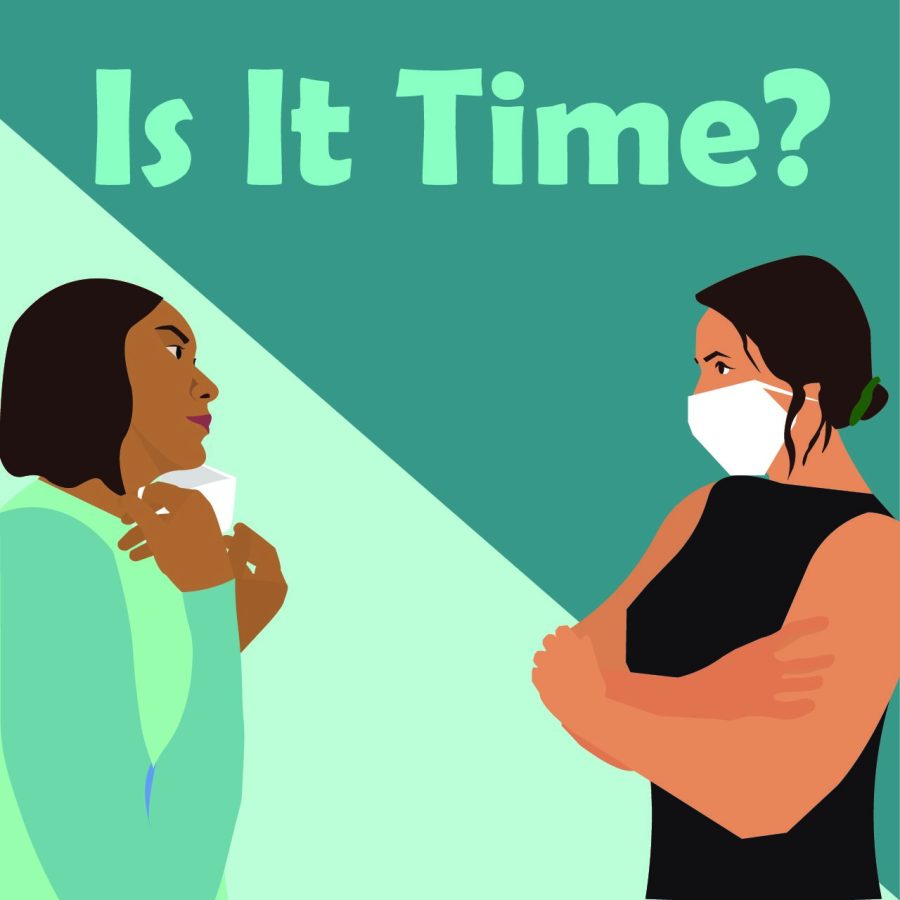Editorial — Is enough being done to protect us from COVID-19?
September 7, 2022
With the first week of the fall semester in the rearview mirror, the dramatic shift in mask regulations on campus has quite literally been a breath of fresh air. For the first time since the start of the COVID-19 pandemic, NMU’s campus is beginning to come back to life.
Smiling faces and conversations can be seen throughout the academic mall, along with student organizations gathering in spaces that have been off-limits in the past two years. Campus life is seemingly overflowing with positivity and carefreeness — a dramatic shift from the recent past.
Yet, we wonder if enough is being done to ensure this long-awaited freedom lasts.
In an email received by the campus community on Aug. 25, the president’s office announced an updated version of NMU’s pandemic protocols. In addition to no requirement for vaccination against COVID-19, the university decided to cease its university-wide mask mandate and weekly surveillance testing before the semester had even begun.
While the email encouraged those who wished to continue wearing a mask to do so, anyone walking around campus can conclude that the percentage of students wearing a facial covering is little to none.
Considering we are all coming off of a three-month vacation, which we spent dispersed across the country, perhaps it would have been wise to continue surveillance testing and mask-wearing for the first few weeks of the semester. This would have ensured that we did not bring COVID-19 to campus and subsequently spread it to our roommates and peers.
By creating this bubble around NMU, with Marquette currently resting in the CDC’s low transmission category for COVID-19, we could have worked to limit infection by preventing transmission through early detection of illness.
Any form of mitigation, however, has seemingly been avoided.
According to NMU’s COVID-19 Dashboard, the number of those contracting COVID-19 has been on a positive trend since the start of the semester. While the dashboard no longer indicates who has contracted the illness, previously detailing whether faculty, on-campus students or off-campus students had reported a positive test, it does show that three people are currently being isolated on campus. All of the dashboard information relies on testing done on campus or a self-report of a positive test, leaving many unknowns in terms of COVID-19’s current impact on the campus community.
Despite this, many of us feel safe on campus. As a relatively young and healthy population, plenty of students have already contracted the virus and recovered after a few days of illness. Additionally, vaccination has helped reduce some of the severe implications of contracting COVID-19.
However, it is unfair to be unconscientious of the many at-risk populations on campus. In addition to immunocompromised individuals, many of whom are still seeking vaccination, numerous professors categorize themselves in this category as well. Whether it be their age or the fact that they have children at home who are too young to be vaccinated, it is important to ensure that their lives, and livelihood, are protected when at work. Therefore, we need to respect each other’s masking decisions and requests for mask-wearing in personal spaces.
It is okay to feel optimistic about the state of the pandemic and a mask-free future. Considering that the COVID-19 pandemic was one of the largest mass trauma events in American history, the idea of leaving that period of our lives behind us is extremely alluring. That Aug. 25 email from the president’s office was the bit of good news that we had been waiting to hear for so long, and for those of us who started college in 2020, we have never known what it truly means to be a college student.
But, and there always seems to be a “but,” will our campus community be willing to switch back to mask-wearing if the situation presents itself? Considering the flip-flopping of the mask mandate just over the summer months, which was previously reinstated on May 26 before the Aug. 25 reversal, who knows when we will once again be required to mask up for our classes.
When it comes down to it, COVID-19 is not going away. Eradicating the illness has proven itself to be impossible, with the current weekly average of new cases resting at roughly 83,000. Especially with the new Omicron BA.5 variant, which is considered a variant of concern by the CDC due to increased transmissibility and associated severe illness. The best method of recourse as a campus community is to get vaccinated if you are able.


























